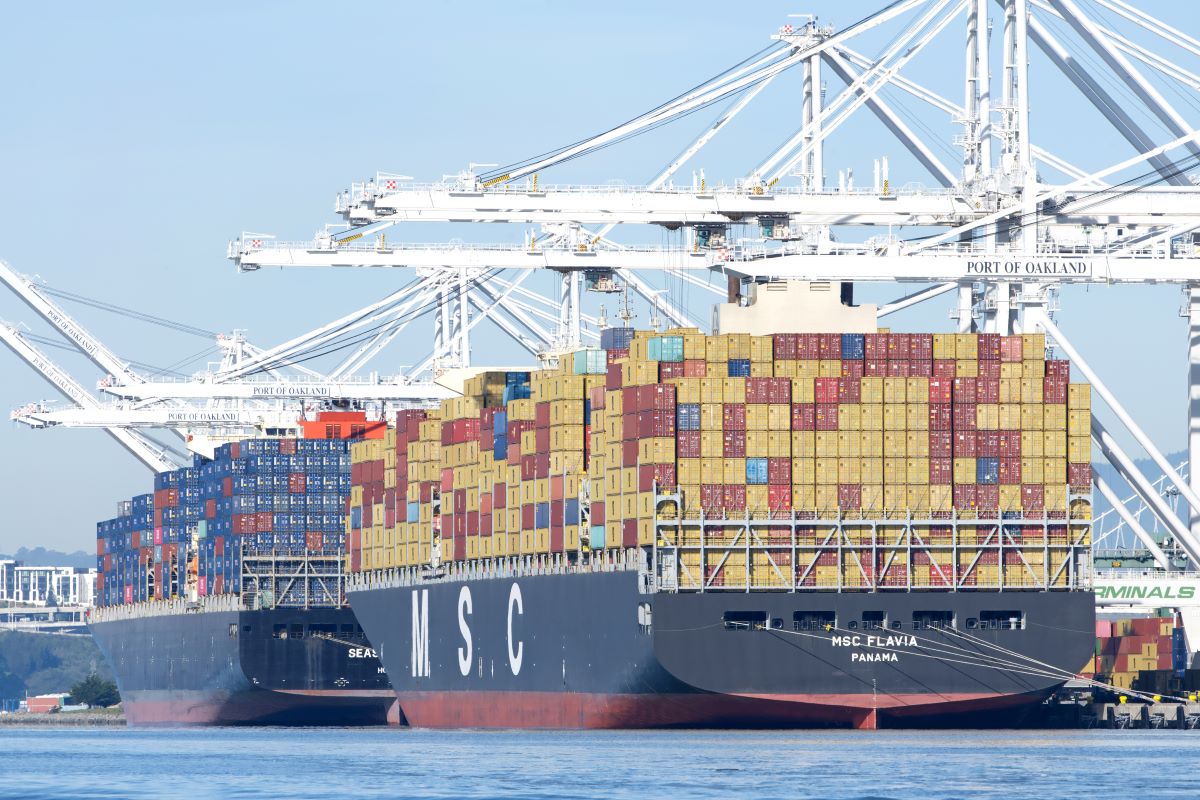By Ashley Eisenbeiser, Vice President, Food and Product Safety Programs, FMI

The food industry prioritizes food safety to ensure the well-being of consumers and maintain trust in the food supply chain. The FMI food safety community is working together to protect public health. Through collaboration, we work to develop solutions to address some of the biggest challenges facing the food industry.
Every year, the FMI food safety community sets initiatives to guide and prioritize their collective work. These priorities help focus FMI’s communication with member companies about pressing food safety issues and direct FMI advocacy efforts with Congress and regulatory agencies on federal food safety policies.
In late January, FMI members gathered ahead of FMI’s Midwinter Executive Conference to identify food safety priorities for the year. The 2025 food safety priorities will focus on four key areas: traceability, produce safety, chemical safety, and sanitation and environmental controls.
Traceability
The compliance date for the U.S. Food and Drug Administration’s (FDA) Food Traceability Final Rule is fast approaching. The food industry shares the agency’s commitment to enhancing traceability, but it must be done right. The requirements of the rule present significant challenges and is the most complex rule the food industry has ever faced from FDA. The entire industry needs more time to ensure each segment of the supply chain can provide the necessary data in the appropriate format, that FDA can retrieve and use the data and that the appropriate technology is available to meet the requirement. Although complex interdepartmental teams have been working for years, the rule FDA designed cannot be implemented within the current timeframe
Produce Safety
Produce safety remains a significant concern, especially after several outbreaks in 2024 involving leafy greens, carrots, cucumbers, basil and onions. Ensuring food safety is foundational to incorporating more fruit and vegetables into dietary patterns. Furthermore, implementing science-based standards to reduce the risk of contamination is essential to the safety of fresh produce.
FMI members are committed to sourcing safe produce and working with public health officials and the produce industry to protect public health. FMI will continue to strengthen food safety programs through collaboration with regulatory agencies, scientists and academia, and the produce industry to advocate for more research, identify root causes and implement preventive measures.
Chemical Safety
States across the country continue taking action to limit or phase out heavy metals and certain ingredients, creating a patchwork of requirements that challenge the food industry. Many jurisdictions are aggressively taking legislative actions: banning federally approved food and color additives, imposing strict testing requirements and requiring label and website disclosures for certain products.
Likewise, there has been a significant increase in activity at the federal level. During the last month of the Biden administration, FDA:
- Revoked authorization of Red Dye No. 3, despite affirming that Red Dye No. 3 has not been shown to cause cancer in humans. Specifically, FDA revoked the authorization “as a matter of law” based on the Delaney Clause, specifically because two studies showed cancer in male laboratory rats exposed to high levels of FD&C Red No. 3 due to a rat specific hormonal mechanism.
- Published final guidance on action levels for lead in processed food intended for babies and young children.
- Determined that authorization for 35 food contact notifications related to PFAS is no longer effective.
This year, the food industry will be working to identify opportunities for more research to ensure regulatory actions are based on both science and risk and are achievable.
Sanitation and Environmental Controls
Adequate cleaning, sanitizing and implementing appropriate environmental controls are foundational to an effective food safety program, whether in manufacturing or in retail. Challenges such as labor shortages, high turnover rates and the need for innovative sanitation tools are being addressed to ensure a safe food supply.
The food industry today is dedicated to continuously improving food safety. Each of these priorities serve as an example of how the industry is working to advance food safety, protect public health and enhance consumer trust in the food they consume. As we tackle these complex issues in 2025, new challenges and opportunities are likely to arise. Nevertheless, the industry’s commitment to food safety remains constant.


 Industry Topics address your specific area of expertise with resources, reports, events and more.
Industry Topics address your specific area of expertise with resources, reports, events and more.
 Our Research covers consumer behavior and retail operation benchmarks so you can make informed business decisions.
Our Research covers consumer behavior and retail operation benchmarks so you can make informed business decisions.
 Events and Education including online and in-person help you advance your food retail career.
Events and Education including online and in-person help you advance your food retail career.
 Food Safety training, resources and guidance that help you create a company food safety culture.
Food Safety training, resources and guidance that help you create a company food safety culture.
 Government Affairs work — federal and state — on the latest food industry policy, regulatory and legislative issues.
Government Affairs work — federal and state — on the latest food industry policy, regulatory and legislative issues.
 Get Involved. From industry awards to newsletters and committees, these resources help you take advantage of your membership.
Get Involved. From industry awards to newsletters and committees, these resources help you take advantage of your membership.
 Best practices, guidance documents, infographics, signage and more for the food industry on the COVID-19 pandemic.
Best practices, guidance documents, infographics, signage and more for the food industry on the COVID-19 pandemic.
